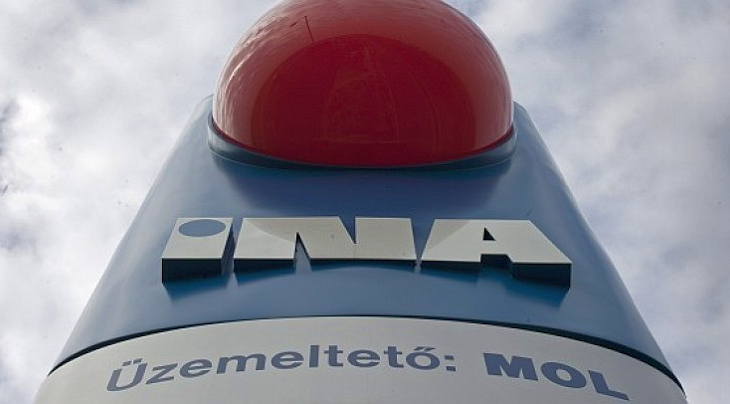Russia’s power giant Gazprom intends to buy a majority stake in Croatian refiner INA, in which Hungarian fuels group MOL holds a controlling stake, Hungarian business daily Világgazdaság reported on Monday, citing Croatian press reports. The bout between MOL and INA has been dragging out for quite a long time and it is not the first time Russians are mentioned as potential buyers, according to portfolio.hu.
Citing the sources, the paper also claims MOL is very close to selling its nearly 50% stake in INA. It added that MOL would gladly rid of its INA holding. The final word will be said by Hungarian Prime Minister Viktor Orbán after talks to be held with European Union officials. Gazprom chiefs are expecting an answer by the end of the year. In a favorable scenario, the takeover would be executed in 2015. On top of MOL’s share in INA, Gazprom would buy another 19% stake from the Croatian government, which would be left with a 25% package plus one share. This is not the first time the name of a potential Russian buyer comes up, both parties had indicated MOL would be willing to sell its INA stake, but during the tag of war between the two parties it could have appeared only as a threat. Now, however, every such report could be important as a decision in this matter is probably close. After MOL’s last annual general meeting the group’s management clearly stated that it was not satisfied with the speed of the negotiations with the Croatians and if no fast enough progress was made it would be ready to sell INA. Chances of a third party (apparently a Russian) buying MOL’s are increased by the fact that even Croatia’s Supreme Court confirmed a guilty verdict on former Prime Minister Ivo Sanader in a graft case (in which he was accused of taking a bribe from MOL to ensure the Hungarian company gets management rights in INA). This indicates it very well how important this issue is politically in Croatia. At the same time, this also reduces chances that a swift deal will be reached on what to happen with INA. A Russian buyer, however, does not seem to be such a good idea because of Moscow’s previous intervention in Ukraine and the western sanctions on Russia that followed. In such an environment it would probably make some waves if an EU member state forged a long-term strategic co-operation with a Russian company.
